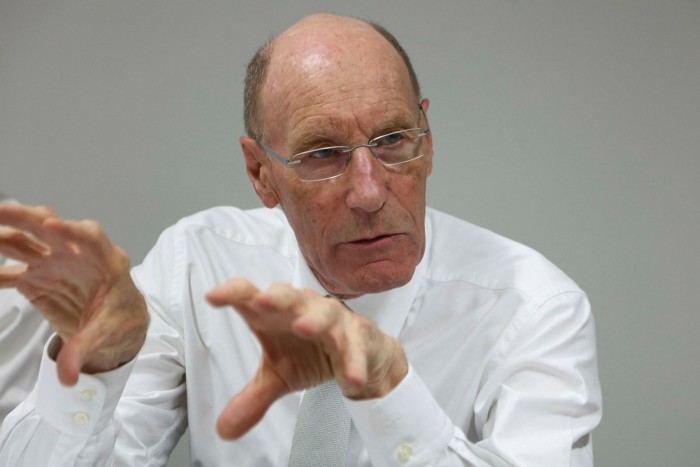The British government should “come clean” with consumers over the impact new nuclear plants will have on their energy bills, the infrastructure chief has warned.
In an interview with the Financial Times, Sir John Armitt, chair of the National Infrastructure Commission, warned that new nuclear plants would take a “long time to deliver” and would “inevitably add cost to bills in the nearer term once construction begins”.
“Given the choice it has made, it will be vital that government is transparent about how much consumers are being asked to pay for new nuclear, especially if that begins to bite before energy prices drop,” he said.
UK prime minister Boris Johnson has ordered ministers to pursue the expansion of Britain’s nuclear energy at “warp speed” to reduce dependence on oil and gas imports. There are plans for up to eight new plants, with the first expected to be the £20bn Sizewell C project on the Suffolk coast.
Not only is the UK government investing up to £1.7bn of taxpayers’ money into Sizewell C but its construction will be funded by the RAB model under which taxpayers subsidise the project through a surcharge on energy bills as it is being built.
The British government has predicted that each new power station built with RAB would cost “at most a few pounds a year” for the typical household during the early stages of construction — peaking at £12 a year during the full construction phase.
But Stop Sizewell C, a pressure group, has argued that the £12 figure could be achieved only “under the most optimistic scenario in the impact assessment” by the government.
“Overall payments by households during construction could increase up to threefold between best and worst-case scenarios, from £148 to £431, and inflation has not been included,” it said.
Armitt’s intervention comes as the new nuclear programme has been dogged by years of delays and cost overruns.

On Friday French state-backed utility EDF warned that the cost of the new Hinkley Point C nuclear power plant under construction in south-west England could balloon by an additional £3bn to cost a total of £25bn-£26bn. This compared with an estimate of £18bn when it received the go-ahead in 2016. It is also running at least eight years late.
Armitt added: “It is clear that no developer is prepared to build a new major nuclear plant without government support . . . Using the RAB model will get these schemes going, but the decision to put the cost on energy bills, not taxation, will mean consumers pay upfront.”
The government said: “We completely reject these comments. We have been very clear with the public that a large-scale project funded under this scheme would add at most a few pounds a year to typical household energy bills during the early stages of construction, and on average around £1 per month during the full construction phase of the project.”
The RAB model has been used to build London’s £4.2bn Tideway super sewer, a 16-mile tunnel under the river Thames. Consumers are paying an average of £17 a year on their bills, which could rise to £25.
The Tideway deal has proved lucrative for directors, who have received £16mn over the past six years, as well as investors. Investors received £193.2mn in interest as well as £54.5mn in capital repayments on £1.3bn of equity and loans over five years. They will receive a further £57.7mn in interest payments, deferred in 2021 in light of the pandemic.

